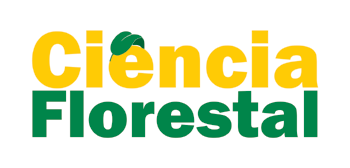Abstract
One of the following types of substrates is rice husk, although it is not easily found, mainly in the southern of Minas Gerais state, while coffee straw is one of the main generators of the region. The objective of this study was to use a technique for the use of carbonized coffee straw (PCC) substrates in preference to the use of carbonized rice husk (CAC) in the coconut fiber (CF) formulation for the production of Eucalyptus urophylla and Anadenanthera macrocarpa seedlings. Four substrates were tested, with five replications and 20 seedlings per plot, using a randomized block design. As proportions of the mixtures were S1 (60% FC and 40% CAC), S2 (80% FC and 20% CAC), S3 (60% FC and 40% PCC) and S4 (80% FC and 20% PCC). The height (H), collection diameter (DC), shoot dry mass (MSPA), dry mass of the root system (MSSR) and robustness index (H/DC), root density (DR) and the Dickson Quality Index (IQD), were measured at four months. Evaluations of ease of removal of seedlings and aggregation of roots were also made to the substrate. For Eucalyptus urophylla, all the evaluated parameters are within the recommended for the removal of the seedlings. However, the substrates are based on PCC results. For the Anadenanthera macrocarpa, the parameters H, DC, H/DC and IQD, presented within the required for the expedition of the seedlings, in relation to the formation of the clod, S1 presented higher average. Therefore, the use of CCPs in detriment of CAC is indicated for the production of seedlings of both species.
Keywords:
Quality in Seedling Production; Organic Substrates; Carbonized Rice Peel
